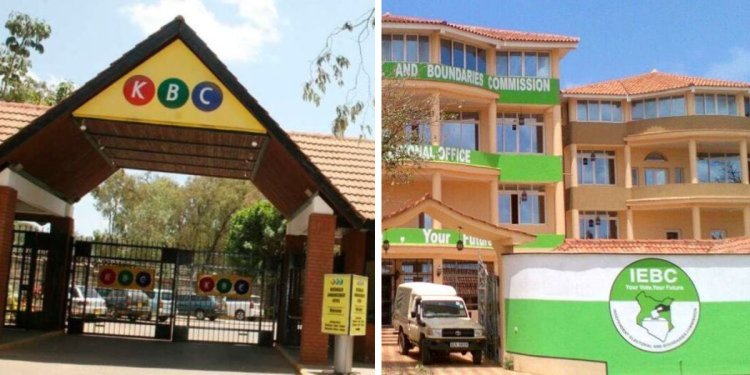David Ndii Reveals Ruto Dilemma In Salary Delay Crisis
Ndii responded to widespread concerns regarding the government being depleted of cash to pay its civil servants...

David Ndii, Chairperson of President William Ruto's Council of Economic Advisors, on Saturday, April 8 revealed that the government could have ran into trouble before reports of salary delays surfaced on Friday, April 7.
Ndii responded to widespread concerns regarding the government being depleted of cash to pay its civil servants for the month by revealing that President William Ruto's administration would be stuck between remitting the pending salaries or risk facing consequences of defaulting on loans.
Explaining the hardships, the renowned economist revealed that the government channelled more than 60 per cent of its revenue to service debts with less than 40 per cent of the collected revenue directed towards paying salaries and supporting other government expenditures.
Ndii further noted that the cash resources were thus in short supply, amidst the demand to remit civil servants their dues, leaving the current government with two choices; service the debt or pay the public servants.

President William Ruto speaking at the roadside during the launch of bitumen standard of the Njoro-Beeston-Neisut, Beeston-Lawina-Elburgon and Mauche-Sururu Roads in Nakuru County on Thursday, April 6, 2023. /TWITTER.WILLIAM RUTO
"Is public finance that difficult? It's reported every other day debt service is consuming 60%+ of revenue. Liquidity crunches come with the territory. When maturities bunch up, revenue falls short, or markets shift, something has to give. Salaries or default? Take your pick," he stated.
"Foreign debt is not the issue. I'm talking about weekly maturities of domestic debt held by your banks and pension funds (80%+ of debt service) Which would you rather, a haircut on your bank deposits or delayed payments?" he further posed.
One Kenyan on Twitter sought to challenge his take on the dilemma facing Ruto's administration on the salary crisis, arguing that there cannot be any justification for not paying salaries since the crisis not only affected the civil servants but their families who depend on them.
Ndii however responded by indicating a possibility of retrenching civil servants to cut costs which would be used to service debts.
"The first obligation of a govt is survival and political stability. The more the dynasties foment destabilization the more we will have to spend on political capital. If push comes to shove handshake is always an option. How much do you think that will cost?" he posed.
The economic expert issued the clarification after several public servants, including members of parliament, raised concerns regarding the salary delays.
On Friday, April 7, Minority Leader in the National Assembly Opiyo Wandayi lamented that the country cannot pay salaries nor can it finance its operations, adding that for the first time since independence in 1963, the government was unable to pay salaries to civil servants and Members of Parliament (MP).
"For the first time in our history, even MPs have not been paid as we head towards mid-month.
"Only members of the security services-police and military have been paid as we speak and the reason must be obvious to all. But it won't be long before members of the disciplined forces also begin missing salaries if we continue this way," he complained.
Other than MPs, the cash crunch affected both the Kenya Broadcasting Corporation (KBC) and the Independent Electoral and Boundaries Commission (IEBC), two institutions that were in the eyes of Kenyans for most of 2022.
For KBC, sources confirmed to Viral Tea receiving an internal memo on Friday, April 7 from acting Managing Director, Samuel Maina, stating that they would not be paid before the Easter festivities.
"Management regrets to inform you that we are unable to pay the March 2023 salaries before Easter Holidays due to unavoidable circumstances.
"We are working round the clock putting in considerable efforts to ensure that the salaries are paid as soon as possible. Management apologises for the inconveniences caused," read the statement in part, which did not indicate a clear timeline as to how long the delays would last.

The same case applied to IEBC with the office of the Chief Executive Officer (CEO) Marjan Hussein sending a memo to its staff regarding delays in disbursing the March 2023 salaries.
Treasury Cabinet Secretary, Njunguna Ndung'u, had spoken on the matter while attending a meeting with parliamentarians on February 8, maintaining that the government was keen to address the cash crisis.
"The government is like a home. Sometimes you may have needs but there is no money for that. However, when you work hard, you will finally get money to address your needs," he stated.






